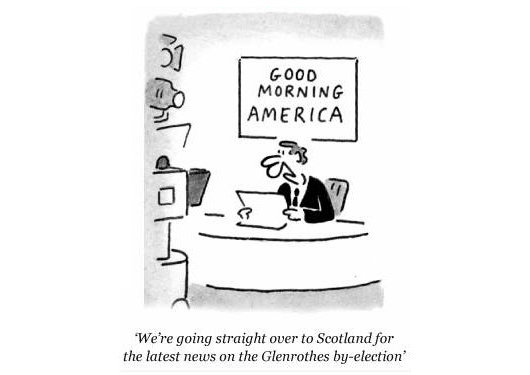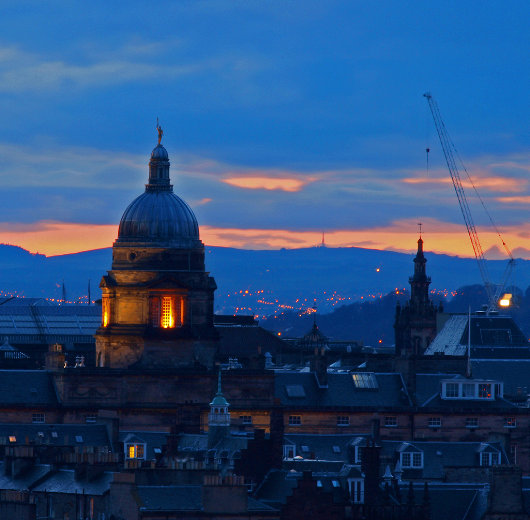Scotland
About Andrew Cusack
 Writer, web designer, etc.; born in New York; educated in Argentina, Scotland, and South Africa; now based in London.
Writer, web designer, etc.; born in New York; educated in Argentina, Scotland, and South Africa; now based in London. read more
News
Blogs
Reviews & Periodicals
Arts & Design
World
France
Mitteleuropa
Knickerbockers
Argentina
The Levant
Africa
Cape of Good Hope
Netherlands
Scandinavia
Québec
India
Muscovy
Germany
Academica
Our Cardinal & Our Seminarians
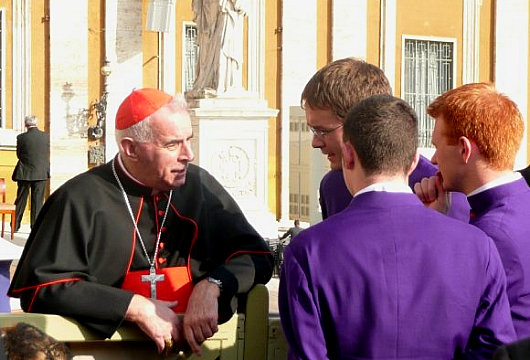
His Eminence Keith Patrick O’Brien, Cardinal Archbishop of St Andrews & Edinburgh, Primate of Scotland, has a wee chat with a triumvirate of seminarians from the Pontifical Scots College, Rome at the Holy Father’s weekly general audience. St Andreans (or at least Old Canmoreans) will recognize the ginger chap at right, attentively listening to the Cardinal’s words. I caught up with him in August when he had just a week to go before heading to seminary.
The Would-Be King of New Zealand
Brigadier the Right Honourable Sir Bernard Fergusson,
Baron Ballantrae, KT, GCMG, GCVO, DSO, OBE
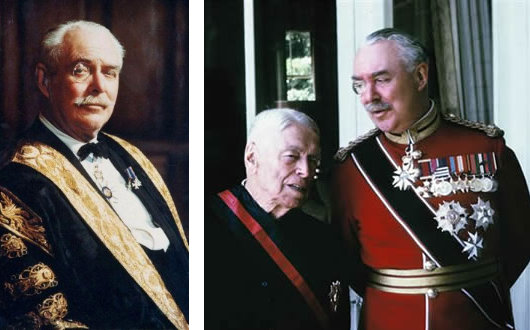
Left, Lord Ballantrae in his robes of office as Chancellor of the University of St Andrews; Right, as Governor-General of New Zealand with former Prime Minister Sir Walter Nash.
Over at Curated Secrets, Stephen Klimczuk takes a brief wander through Clubland, mentioning the illustrious Bernard Fergusson, who was known for “the skill with which he could toss his monocle in the air and catch it in his eye”. Stephen’s co-author on Secret Places, Hidden Sanctuaries, the Much Hon. Laird of Craiggenmaddie, chimes in on the commentbox, bringing to light that “when he was serving under Orde Wingate with the Chindits in Burma, among the supplies dropped by the RAF to those doughty warriors was a supply of monocles for Fergusson, since the damage/loss rate was so high in the jungle.”
Fergusson has always fascinated me, not only because he was the Chancellor of my university, but also because he has the best claim to the throne of New Zealand should the Land of the Long White Cloud ever decide to dispense with the House of Windsor. Lord Ballantrae (as Fergusson was ennobled) served as Governor-General of New Zealand, his own father served as Governor-General of New Zealand, and both his grandfathers served as Governor of New Zealand before the antipodean kingdom became a dominion. Rather appropriately, his son and heir is currently serving as Her Majesty’s High Commissioner to New Zealand, which is now the highest office of the British government in those islands.
Stephen mentions other fun stories of Clubland, such as the waggish response of the dinner guest who was kept waiting for Hermann Goering at one club before the war: “‘I have been shooting,’ said Goering. ‘Animals, I hope?’ was the quite reasonable question in response.”
Scottish Field

“He looked up from Scottish Field and all the colour, all the warmth of the world of those pages seemed to drain away.” So writes Alexander McCall Smith in The World According to Bertie, in which the eponymous minor’s enforced visits to the child psychiatrist at the command of his overbearing mother are made at least somewhat bearable by the freedom to flip through the pages of the magazine. Scottish Field is an institution, a staple of doctors’ waiting rooms and bed-and-breakfast sideboards, as well as acting as a Caledonian companion to Country Life and The Field (both of which are produced south of the Tweed, a world away). Your humble & obedient scribe even once graced the high-and-mighty social pages of Scottish Field, beside Lt. Col. Bogle and His Eminence the Cardinal Archbishop of St Andrews & Edinburgh.
Scottish Field recently underwent a bit of a redesign, which included a typographical change to its old-fashioned nameplate (often called a banner or, erroneously, the masthead). (more…)
Richard Demarco
“We didn’t know quite how to take this, but we sat there entranced.”
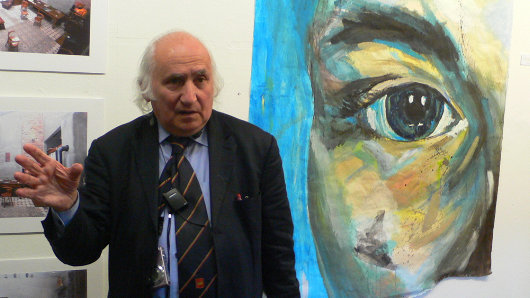
ONE OF THE markedly few deficiencies of the English language is coming up with a word to describe Richard Demarco. The Scottish press have generally settled upon “impresario” but even that somewhat-ambiguous word fails to do the man justice. Ricky was born in Edinburgh in 1930, grew up in Portobello, and remembers the day when his mother held him back from school because Italy — from whence he stock came — had just declared war on Great Britain. He’s attended every Edinburgh Festival since the very first one began in 1947 — as the founders put it, to “provide a platform for the flowering of the human spirit” in the grim aftermath of the Second World War.
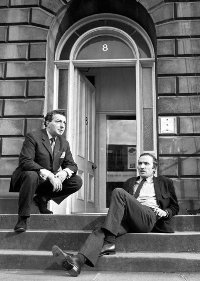 Richard Demarco, couchant, with noted Scots caricaturist Emilio Coia.
Richard Demarco, couchant, with noted Scots caricaturist Emilio Coia.In 1963, he cofounded the Traverse Theatre, Scotland’s theatre for new writing, and three years after that founded the Richard Demarco Gallery which promoted Scotland’s cultural interchange with artists across Europe including — very importantly to Richard — from behind the Iron Curtain that divided the continent into free and captive halves. This was during an age when many in the arts world were too busy sympathizing with the murderous totalitarianism that had subjugated half of Europe. Richard has been a deep critic of the choices made by the British government as patron of the arts throughout the decades of his life, but not too long ago he finally patched things up with the Scottish Arts Council.
Readers of Alexander McCall Smith’s 44 Scotland Street might recall the man who comes to speak to the Scottish Police College. The “really important person from the art world in Edinburgh”, as Mr. McCall Smith puts it, comes and tells the trainee constables about the gorgeousness of Italian carabinieri uniforms and how the Scottish psyche still suffers from the iconoclasm of the Reformation, and even suggests architectural alterations and more sympathetic decoration of the Police College. “We didn’t know quite how to take this, but we sat there entranced,” the character admits in 44 Scotland Street. Anyone who either knows Ricky or has been to one of his lectures would immediately recognize the unnamed subject of the passage.
I first met the man when I was a first-year student at St Andrews and he had come up from the capital to give a lecture. I can’t remember what the stated subject was but this is entirely irrelevant as so vast and wide-ranging is the mind & experience of Richard Demarco that he is known for (some would say “notorious for”) never keeping within the bounds of the stated subject. Those who invite Richard to speak shouldn’t bother with a subject, just make posters stating “RICHARD DEMARCO SPEAKS”, giving the date, time, and place, and a crowd of interested characters is bound to turn up. (more…)
An Early Proposal
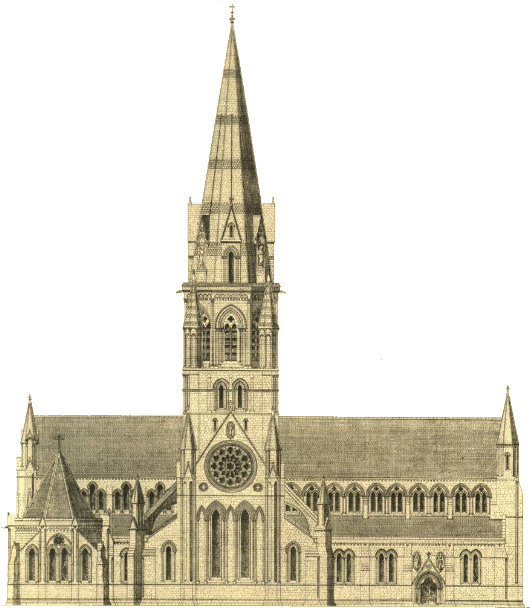
The Cathedral Church of St. Mary (Scottish Episcopal), Edinburgh.
David Kerr for Glasgow North East
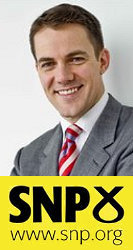 While the baggage-handler and much-celebrated hero of the Glasgow Airport attacks, Mr. John Smeaton QGM (“This is Glasgow; we’ll set aboot ye. … You’re no’ hitting the Polis mate, there’s nae chance.”) has announced he is going to contest the Glasgow North East by-election for some fringe electoral outfit, this blog is happy to report that there is already a perfectly laudable candidate who is seeking the privilege of serving the constituents of that district at Westminster.
While the baggage-handler and much-celebrated hero of the Glasgow Airport attacks, Mr. John Smeaton QGM (“This is Glasgow; we’ll set aboot ye. … You’re no’ hitting the Polis mate, there’s nae chance.”) has announced he is going to contest the Glasgow North East by-election for some fringe electoral outfit, this blog is happy to report that there is already a perfectly laudable candidate who is seeking the privilege of serving the constituents of that district at Westminster.
Mr. David Kerr, a Catholic graduate of the University of St Andrews and until recently a senior editor of BBC Scotland’s “Reporting Scotland” programme, is the Scottish Nationalist candidate for Glasgow North East. The Labourite newspapers have already set David Kerr as the target of their sleaze machine, first for a derogatory comment about Glasgow Caledonian University “not having a reputation to tarnish” made in a jocular spirit of inter-academic rivalry, then over a television investigation into the availability of weaponry in which Mr. Kerr was pictured with… well, weapons! (Oh, the horror! Vote Labour!)
Mr. Kerr is believed to be a favourite of SNP leader Alex Salmond, the First Minister of Scotland. The SNP are currently the only major party in mainland Britain who are actively pursuing the Catholic vote. While SNP members tend to be vaguely left-wing and pro-independence (as is the official party policy), SNP voters are often more traditional or conservative and in favour of preserving some form of union. (The Conservative Party, meanwhile, is frequently perceived as a party for liberal English toffs; a perception reinforced by David Cameron’s leadership). The Nationalists are doubtless trying to repeat their victory over Labour in last year’s Glasgow East by-election, in which ethical issues are believed to have played a significant role in Labour’s defeat.
The bookmakers Ladbrokes are currently giving David odds of 5/4 in winning the seat, against 4/6 for Labour’s Willie Bain.
Good to be back
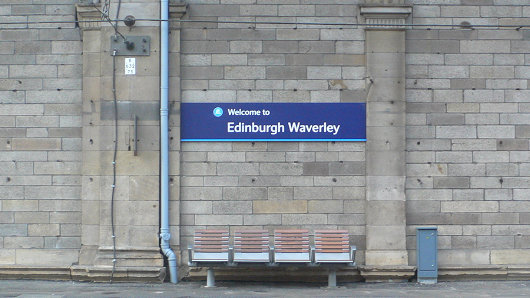
Sad to leave it. (I’m in London now).
From the Number 23 Bus
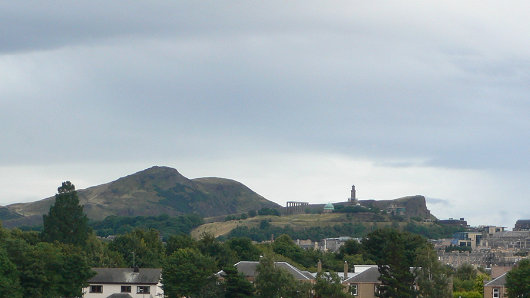
A view of Edinburgh from the top of the no. 23 bus. (more…)
Celebrating a Great Scot: David Lumsden
I can’t tell you how often I come across something and think to myself “I must ask Lumsden about that”, and then suddenly realise that no such thing is possible anymore. I only had the privilege of knowing this gentle giant of a man towards the end of his life, but am grateful even for that relatively short friendship. Below is the address given by Hugh Macpherson at the Thanksgiving Service for the Life of David Lumsden of Cushnie that took place at St. Mary’s Church, Cadogan St., London on Monday, 27th April 2009. May he rest in peace.
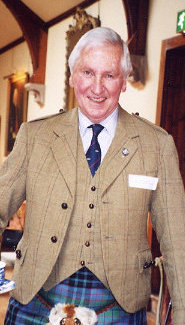 It is difficult to mark the passing of such a remarkable personality as David Lumsden. We have done with the requiems and the pibrochs and must now look forward to celebrate an extraordinary life lived to the full.
It is difficult to mark the passing of such a remarkable personality as David Lumsden. We have done with the requiems and the pibrochs and must now look forward to celebrate an extraordinary life lived to the full.
David was a man of many parts and passions. He was a renaissance man with a wide variety of interests, and if he did not know the answer to any particular question, he certainly knew where to look it up, and in a few days there would be an informative card in the post. He had a lively curiosity and sense of adventure.
Perhaps the ruling passion in his younger life was that of rowing. He rowed at Bedford School and when he went up to Jesus College Cambridge, he joined the boat club, eventually becoming Captain of Boats. There were, I think, eventually eight “oars” on the walls of his various houses. I think that David was one of the few people I know who went to Henley to actually watch the racing, and when one went into the trophy tent his name could be found on some of the trophys. The expedition to Henley was one of the fixed points of David’s year.
He travelled round the country rather like the “progress” of a monarch of old. This progress encompassed the Boat Race, Henley, the Royal Stuart Society Dinner, the Russian Ball, spring and autumn trips to Egypt, the Aboyne Games, the 1745 Commemoration, the Edinburgh Festival, and numerous balls and dinners, including of course the Sublime Society of Beef Steaks.
Rather like clubs, David and I had a “reciprocal” arrangement: When I was in Scotland I lodged with him, and when he was in London he lodged with me, and I can tell you that there were many times when I simply could not keep up with his social whirl, in fact once or twice I distinctly fell off! I remember one particularly splendid and bibulous dinner at the House of Lords at which we were decked in evening dress and clanking with all sorts of nonsense — after many attempts to hail a taxi, David turned and said to me “You know we are so drunk they won’t pick us up. We’ll have to stagger back.” And so we wound a very unsteady path back to Pimlico, shedding the odd miniature en route.
At Cambridge, David also formed a lasting friendship with Mgr. Alfred Gilbey, Catholic Chaplain to the University, who was to have a lasting influence on David’s faith and life, and, I think, introducing him to the Sovereign Military Order of Malta, where he eventually became a Knight of Honour & Devotion.
David’s faith was an important part of his life. When he was in London he would attend this church on a Sunday morning to hear the 11.30 Latin Mass, which finished conveniently near to the opening time at one of his favourite watering holes in the Kings Road. (more…)
Our Cardinal at the Oratory
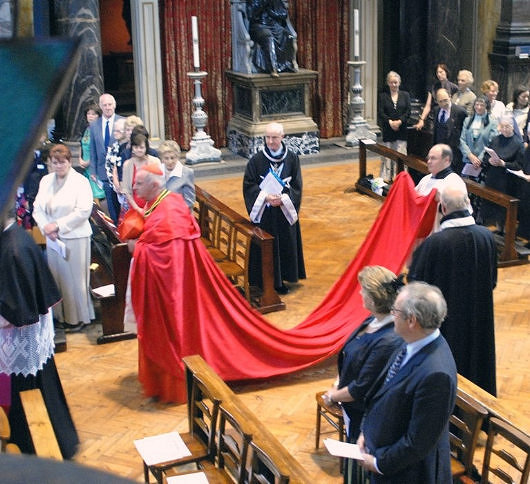
His Eminence Keith Patrick O’Brien, Cardinal Archbishop of St Andrews & Edinburgh, at the Brompton Oratory for the Feast of St. John the Baptist this year.
(From the NLM)
S.R.E. & S.R.I.
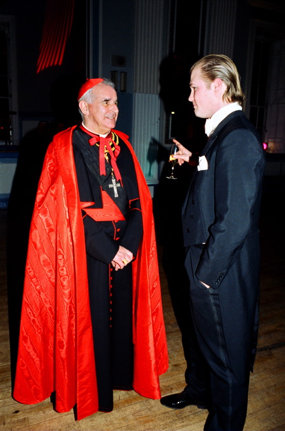
Left, a prince of the Holy Roman Church and right, a prince of the Holy Roman Empire.
Credit: I think this is one of Zygmunt’s photos.
The Scottish Executive, 1999-2007
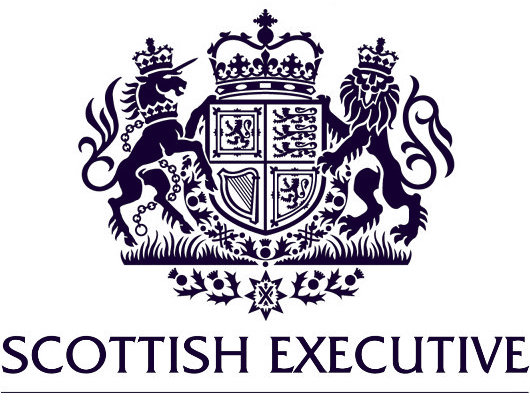
While naturally relieved that Labour are no longer in charge, one of the few objections I have to the current SNP government in Scotland is that they changed the name of the Scottish Executive to “the Scottish Government”. The new name is just so damned boring. Every country, region, town, and borough has a “government”; it’s the dullest word you can come up with. But “the Scottish Executive” had such a nice ring to it. Listening to the evening news on Radio Scotland, one heard the newsreader speak of “the Scottish Executive” and immediately thought “Ah yes, that’s our part of the government!” Now one hears the sultry phrase “The Scottish Government today announced new measures…” and thinks “Oh, the government. Nobody likes the government.”
To add to this lamentable change, they even dumped the Scottish coat of arms as the visual identity of Scotland’s authority (as seen above, in the Executive days) and replaced it with an exceptionally dull saltire-flag logo that can be seen on the Scottish Government’s website.
Premier Salmond, give Scotland back her heraldry!
Journey to Scotland
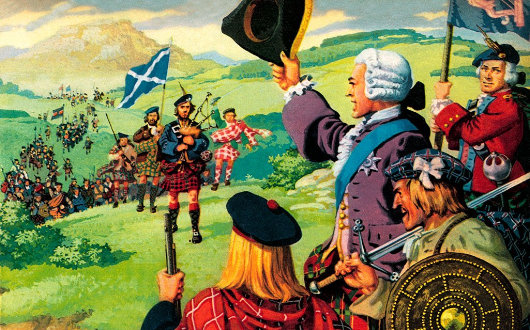
Perhaps foolish to title this entry ‘Journey to Scotland’ as I’ve already crossed the border into England, and indeed my train has just crawled past the beautiful towers of York Minster. I arrived in Scotland on Saturday and neglected to make the pilgrimage to my alma mater of St Andrews but instead spent all of my time in the elegant confines of Edinburgh. Saturday night beheld a splendid repast, including salmon freshly arrived from Ireland, champagne, and brandy cake. After the glories of an old-rite Mass on Sunday morning there was tea aplenty (and brief chats with Gerald Warner and Fra Freddy) before enjoying tankards of champagne near Queen Street Gardens, followed by an excellent late lunch in one of Auld Reekie’s best Italian restaurants, topped off with hot apple pie and a bit of Bas Laubade armagnac (1946).
On Monday I took a break from eating and called at one of my favourite paintings in the National Gallery on the Mound (Pas Mèche by Jules Bastien-Lepage) before a pub lunch with very good friends. A few pints in the Guildford Arms next to New Register House (home to the Court of the Lord Lyon, for those heraldically inclined) led to the standard student dinner of spag bol in a flat off Morningside Road. Yesterday, however, my old friend Richard Demarco led me on a personal tour of Arthur’s Seat and Salisbury Crags in Holyrood Park. A most remarkable guide, with a flair for the dramatic, Richard adeptly explained the ancient significance of the stunning site and declared it a monument even greater than the Pyramids because, unlike those Egyptian constructs, these crags and hills were made not by man but by God.
One of the false conveniences of the modern internet lifestyle is that global websites often redirect themselves to the local version when one is outside the United States. In Montreal just a few weeks ago, I put in “google.com” and automatically got “google.ca”. Similarly, in Scotland, logging out of YahooMail, one is redirected to “yahoo.co.uk” rather than “yahoo.com” regardless of your actual email address. More curiously, however, while passing through Northumberland, I logged on to “google.com” and was redirected to “google.se — Google Sverige”, the Swedish version of Google. Have the Northmen returned, albeit electronically, to claim back the lands that once were theirs?
I am now off to London. My aforementioned friend Richard Demarco is, for lack of a better phrase, big in the arts world of Scotland; this is so despite his strident opposition to much of the arts establishment. Richard believes that divine veneration must be the animating spirit of great art, and that the current reign of nonsense and malarchy in art stems from its divorce from the reality of the Incarnation. For veneration, then, tonight’s eve of the New Year will be commemorated at Brompton Oratory with a Holy Hour and Benediction starting at 11:00pm. Tomorrow’s feast will be marked by yours truly at Spanish Place, where a Solemn High Mass in the Extraordinary Form will be celebrated.
Arrivederci, then, to 2008, and a very happy and blessed new year to all the denizens of this little corner of the web.
Lumsden Requiem in Edinburgh
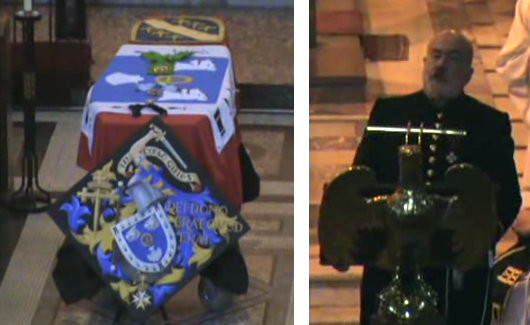
Some good Christian soul was kind enough to put most of our friend David Lumsden‘s funeral at St. Mary’s (Catholic) Cathedral in Edinburgh on YouTube. It was the first Latin requiem in the extraordinary form of the Mass held in the Cathedral for many decades — a fact which David would have particularly enjoyed. Of note is the address given by Robin Angus, embedded below, and of course Gerald Warner’s previously mentioned report should not be missed either.
‘Feudal pomp and Latin Mass at funeral of a Scottish laird’
Gerald Warner reports on the funeral of David Lumsden of Cushnie:
Thursday, September 11, 2008
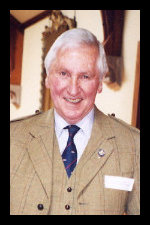 To Edinburgh yesterday, for a melancholy but magnificent and uplifting occasion: the funeral of David Lumsden of Cushnie, Garioch Pursuivant of Arms, restorer of ancient castles and Jacobite romantic. It was held in the Catholic cathedral where, for the first time since Vatican II, the Latin Tridentine Mass was sung, thanks to the permissive rules of Benedict XVI in his motuproprio Summorum Pontificum.
To Edinburgh yesterday, for a melancholy but magnificent and uplifting occasion: the funeral of David Lumsden of Cushnie, Garioch Pursuivant of Arms, restorer of ancient castles and Jacobite romantic. It was held in the Catholic cathedral where, for the first time since Vatican II, the Latin Tridentine Mass was sung, thanks to the permissive rules of Benedict XVI in his motuproprio Summorum Pontificum.
The coffin was draped in the banners of the Order of Malta and the deceased’s arms, with an heraldic hatchment and the decorations of the orders of chivalry to which he belonged. Knights of Malta and of the Constantinian Order processed behind their banner in mediaeval robes. The congregation was filled with peers, chieftains, lairds and splendid eccentrics, the pews awash with tartan. One of the tail-coated ushers was the grandson of a papal marquis. Robin Angus, whose day job is venture capitalist, dressed in the uniform of a papal Knight of St Sylvester, delivered a moving panegyric.
This occasion was a potent reminder of an alternative Scotland, a different pulse from the vulgar, mean-minded, politically correct clones in the abysmal Scottish parliament at Holyrood. It was shamelessly feudal, aristocratic and colourful. Evelyn Waugh would have loved it; Harriet Harridan would have burst her stays. It was reminiscent of the scene in Waugh’s Sword of Honour when, at the funeral of old Mr Crouchback, the members of ancient Catholic Recusant families murmur their sonorous names while the narrator, parodying a wartime poster, concludes: “Their journey was really necessary.”
At the subsequent reception, Lady Mar, whose personal herald David was and who came top of the ballot for the 92 surviving hereditary peers in the House of Lords, was pointedly addressed by Jacobites as “Your Grace”. This was because, although the British state recognises her as 30th Countess of Mar, her ancestor who led the Jacobite Rising of 1715 was created Duke of Mar by the exiled Stuart King James VIII.
Only a few of these Jacobite peerages created by the Stuarts in exile have heirs today. Now that such hereditary peerages no longer bestow an automatic seat in Parliament, it would be a gracious gesture for the Crown to recognise them and so heal old historical wounds. There is a precedent: Spain has recognised the titles of nobility created by the Carlist claimants in exile – Carlism being the Spanish equivalent of Jacobitism.
The dry-as-dust forms issued by government departments are normally very boring; but the most romantic document available online is issued by the Spanish Ministry of Justice, entitled Solicitud de Titulo Nobiliario por: Rehabilitacion/Reconocimiento de Titulo Carlista. It is the formal application for recognition of a title of nobility conferred by the Carlist kings in exile from 1833 to 1936. David Lumsden of Cushnie (RIP) would have appreciated it.
David Lumsden of Cushnie, 1933-2008
Garioch Pursuivant of Arms, sometime Baron of Cushnie-Lumsden, Knight of Malta, Patron of the Aboyne Highland Games

It was with great sadness that I learned this morning of the death of David Lumsden. He was an exceptionally genial and affable man, and was relied on to provide good company at many events, from balls to Sunday lunches and everything in between. But David was generous not only with his good company but with his patronage, as is attested to by the countless organizations he helped and guided. Here was a man who was generous of spirit. David’s death came very suddenly yesterday afternoon in his hotel room at the annual conference of the 1745 Association, of which he was president. Just last Sunday he had attended the traditional Mass at St. Andrew’s, Ravelston in Edinburgh, where a friend described him as “looking as hale and hearty as ever”.
David Gordon Allen d’Aldecamb Lumsden of Cushnie, sometime Baron of Cushnie-Lumsden, was born on 25 May in 1933 in Quetta, Baluchistan in the Empire of India. He was the son of Henry Gordon Strange Lumsden, a Major in the Royal Scots, of Nocton Hall, Lincolnshire and Sydney Mary, only child of Brigadier-General Charles Allen Elliot.
He was educated at Allhallows, Devon, Bedford School, and at Jesus College, Cambridge before serving in the Territorial Army with the London Scottish while working at British American Tobacco. He was a Knight of the Order of Malta, as well as of the Constantinian Order, and was Patron of the Aboyne Highland Games. David enthusiastically served as Garioch Pursuivant to the Chief of the Name and Arms of Mar (presently Margaret of Mar, the 30th Countess of Mar), one of the four surviving private officers of arms in Scotland recognised by the Court of the Lord Lyon.

Lumsden with friends, at the Aboyne Highland Games.
David co-founded the Castles of Scotland Preservation Trust and the Scottish Historic Organs Trust and was President of the Scottish Military History Society. In addition to his Magister Artium from Cambridge, he was a Fellow of the Society of Antiquaries of Scotland. He was on the council of The Admiral the Viscount Keppel Association and was one of the patrons of the famous Russian Summer Ball in London. He was Convenor of the Monarchist League of Scotland and was on the council of the Royal Stuart Society.
In the realm of sport, he was a keen shot and had rowed at Cambridge, in addition to his interest in sailing and riding.
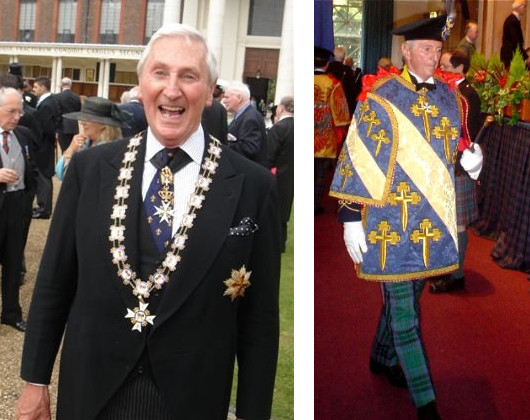
Left: Representing the Royal Stuart Society at the Henry IX commemoration at the Royal Hospital Chelsea. Right: In his capacity as Garioch Pursuivant of Arms, at the XXVIIth International Congress of Genealogical and Heraldic Sciences in 2006.
David had a passion for architecture, and especially that of his native Scotland. Returning in 1970 after a spell in Africa, he undertook the restoration of two family properties: Cushnie House, built in 1688 by Alexander Lumsden and Tillycairn Castle, built in 1540 by Matthew Lumsden. He later went on to restore Leithen Lodge at Innerleithen, an 1880s shooting lodge built in a distinctly Scottish take on the Arts & Crafts tradition. Under the auspices of the Castles of Scotland Preservation Trust, in 1994 he oversaw the restoration of Liberton Tower just south of the Royal Observatory in Edinburgh.
“David was a unique man possessed of an insatiable love of life and learning,” his friend Rafe Heydel-Mankoo said. “He will be deeply missed and fondly remembered by those fortunate enough to have met him.”
“David was at the centre of so many things, and brought together so many different people,” said Lorna Angus, the wife of Robin Angus. “He could bring life to any gathering and he made so many good things possible.”
Robin Angus, meanwhile, said that David Lumsden “personified a world of precious things — things which are imperilled, but which never seemed imperilled when he was there.”
“David no longer visibly with us is unimaginable,” Robin continued. “What his friends must now do is keep the flame, and — as he did — pass it on to others with the same generous wisdom. He was the soul of old Scotland. I hope that, in Heaven, Raeburn will make amends for what the centuries did not allow, and paint his portrait.”
While I wholeheartedly agree with Robin, it must be said that those who were blessed to know David are left with a portrait of him in our hearts and minds far greater than even the brush of Raeburn could achieve.
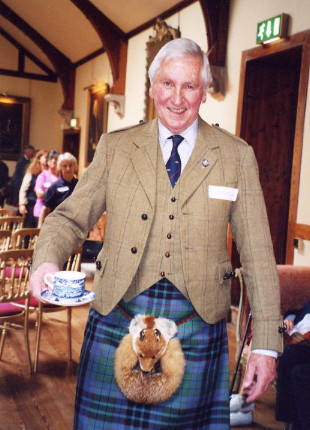
David Gordon Allen d’Aldecamb Lumsden
of Cushnie
1933–2008
“… hold fast to that which is good.”
— 1.Thess 5:21
Requiem aeternum dona eis Domine:
et lux perpetua luceat eis.
Requiescat in pace.
Humiliating Defeat in the Heart of Labour

Well, it looks like they’ve done it: the SNP have slashed a Labour majority of over 13,000 to win the parliamentary seat of Glasgow East with a new Nationalist majority of just 365 votes. The Conservatives and the Liberal Democrats came third and fourth, but with 1,693 and 915 votes respectively, this was very much a two-pony race between Labour’s Margaret Curran (above, left) and the SNP’s John Mason (above, right).
While Glasgow East is deep in the heart of Labour territory, pundits were saying this was going to be a close one. The defection of Catholics is likely to have played a significant role in Labour’s defeat. In the past year, Labour have legalized the creation of animal-human hybrids as well as siblings designed solely for the harvesting of their organs, and this campaign has been vociferously opposed by Catholics around the Union. Mr. Mason made sure to thank those who had prayed for him in his victory speech.
“This is an absolutely remarkable result,” said Angus Robertson, SNP leader at Westminster, “it’s Labour’s third-safest seat — rock-solid territory. Now it’s over. People have had enough and Gordon Brown had better listen because at the next Westminster election the SNP is coming.”
This is the second “safe” Labour seat lost in a by-election in just three months.

Catholic backlash sinks Labour in Glasgow East
Cranmer:
SNP victory in Glasgow East – the Christians won it
the Daily Telegraph:
Labour suffers humiliating defeat as SNP celebrates
the Times:
Nightmare result for Gordon Brown as SNP triumph over Labour in Glasgow East
the Guardian:
Glasgow East byelection victory adds remarkable new chapter to SNP history
Google News:
Glasgow East
Professor Haldane in the Catholic Herald

The Catholic Herald talks to Professor Haldane about the Church’s failure to halt the revolting HFE bill that recently passed (the one authorizing animal-human hybrids and the creation of human “saviour siblings” in labs for organ harvesting) and they have a nice picture of the Good Professor in his sitting room at St Andrews. Prof. & Mrs. Haldane were always very welcoming to students and had a whole bunch of us over a number of times. As I wrote before:
He has a library to be envied as well.
In my very first year at St Andrews, I had the privilege of shaking the hand of none other than Mr. James Macmillan (Greatest Living Scotsman!) at Professor Haldane’s. Certainly one to remember.
Search
Instagram: @andcusack
Click here for my Instagram photos.Most Recent Posts
- Waarburg October 2, 2024
- A Prize for the General September 23, 2024
- Articles of Note: 17 September 2024 September 17, 2024
- Equality September 16, 2024
- Rough Notes of Kinderhook September 13, 2024
Most Recent Comments
Book Wishlist
Monthly Archives
Categories

